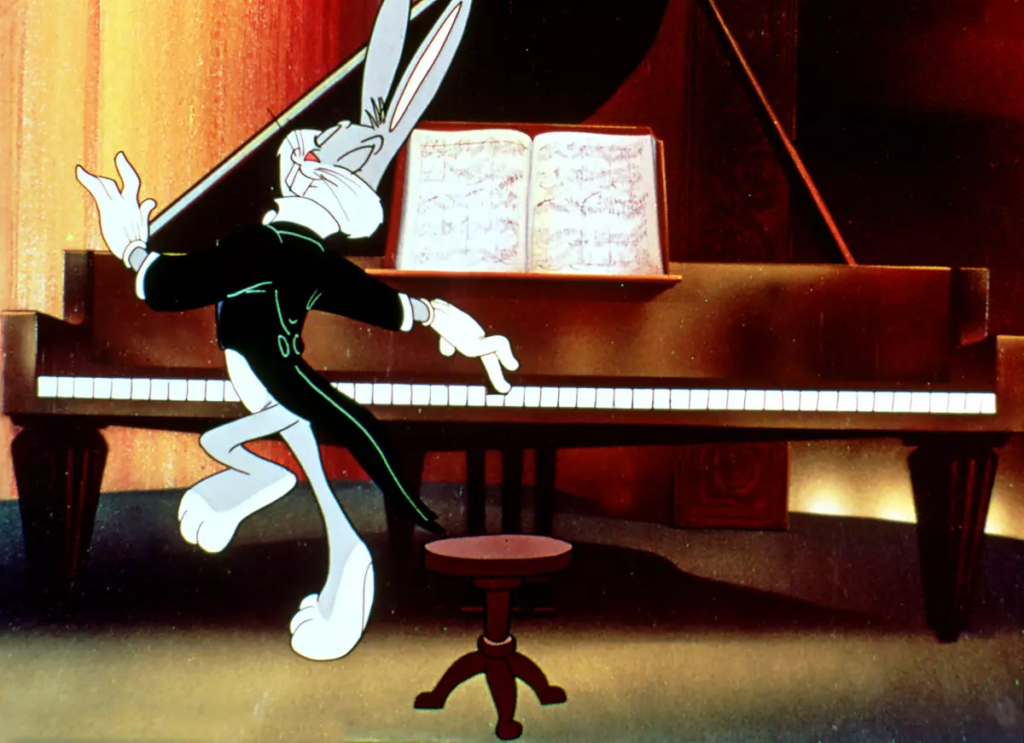In a world constantly bombarded by bad news, it’s rare for something truly significant to break through the noise. Yet, the recent decision by Max, Warner Bros. Discovery’s streaming platform, to remove the original Looney Tunes and Merrie Melodies shorts has done just that. The move, which eliminates 255 classic cartoons—on top of the many that were removed in 2022—has effectively erased Warner Bros.’s iconic shorts from the platform, with cartoons dating back to 1930 all the way through 1969. These shorts, designed for both adults and children, were originally made to entertain moviegoers before live-action films. This decision not only diminishes the legacy of some of the greatest animation directors like Chuck Jones, Robert Clampett, Friz Freleng, Robert McKimson, and Frank Tashlin, but it also disregards the pioneering work of voice actors like Mel Blanc and June Foray, as well as composer Carl Stalling—essentially insulting the very art form of animation.

(Warner Bros. Entertainment)
The history of animation, particularly in the 20th century, can be largely attributed to four great studios: Fleischer Studios (makers of Betty Boop and Popeye), MGM (home of Tex Avery’s iconic characters), Disney (famous for its stylistic, boundary-pushing animation), and Warner Bros. The latter, with its urban, fast-paced house style, brought us a legendary cast of characters: Bugs Bunny, Daffy Duck, Porky Pig, Elmer Fudd, Sylvester the Cat, Tweety Bird, and more. These characters are beloved not just in the U.S., but across the globe, particularly in Latin America, as noted by Gustavo Arellano in 2021. Yet, despite this rich legacy, Max has kept only later iterations of the Looney Tunes franchise—such as Looney Tunes Cartoons (2020), Tiny Toons Looniversity (2023), and Baby Looney Tunes (2002)—while erasing the original works.
It’s tempting to believe that Max’s decision to remove these timeless shorts is driven by a shift in audience preferences. Perhaps younger viewers, raised on sleek, computer-generated animation, are less interested in older, hand-drawn cartoons. But that doesn’t make it any less frustrating. This strategy of prioritizing modern reboots over the originals leaves us with an imitation of the past, while erasing the source material itself—much like if only later James Bond books, not written by Ian Fleming, were available to readers.
Ultimately, this seems to be yet another decision motivated by money. Warner Bros. has already canceled projects like Batgirl, Scoob! Holiday Haunt, and Coyote vs. Acme simply for tax write-offs. Even the new Looney Tunes movie, The Day The Earth Blew Up, starring Daffy and Porky, was removed from Max and sold to another distributor for theatrical release. And, despite performing well in theaters, its absence from the streaming platform signals a troubling trend: one where cultural and historical treasures are sacrificed for short-term profit.
A scene from “Rabbit Seasoning,” a 1952 Merrie Melodies short.
(Warner Bros.)
For many of us, the joy of discovering older works wasn’t just about nostalgia—it was about learning. Whether it was through television packages or VHS collections, there was a cultural push to explore the past. This sense of adventure is what led me, and many others, to fall in love with the golden age of animation, a time when Warner Bros. cartoons were an essential part of childhood. Who doesn’t remember singing along to the theme song of The Bugs Bunny Show?
Now, in the age of instant access, we take it for granted that anything we want to watch is at our fingertips—whether it’s on Netflix, YouTube, or other streaming services. But the removal of these cartoons from Max feels like a betrayal, like taking books off the shelves of a library. Even if you didn’t watch What’s Opera, Doc? or Duck Dodgers in the 24 ½th Century, you knew they were there, ready to be explored at any time. Now, with that access gone, it’s as if something precious has been lost forever.
The truth is, there’s little we can do to reverse this decision. As with artwork hidden away in private collections or films that are rarely screened, much of cultural history is being tucked out of sight. You can still find some Looney Tunes shorts online, often in fragments, but that’s little consolation. Official DVD collections are available, though some of them are suffering from poor quality, thanks to “DVD rot.” Warner Bros. is offering replacements, but that’s a small comfort in an era where streaming promised us greater access than ever before.
In the end, we’re left with a bittersweet reminder that, in a world increasingly driven by profit, cultural heritage is often the first thing to be erased.

